第17章 Part The First (17)
The French Constitution says that to preserve the national representation from being corrupt, no member of the National Assembly shall be an officer of the government, a placeman or a pensioner.What will Mr.Burke place against this? I will whisper his answer: Loaves and Fishes.Ah! this government of loaves and fishes has more mischief in it than people have yet reflected on.The National Assembly has made the discovery, and it holds out the example to the world.Had governments agreed to quarrel on purpose to fleece their countries by taxes, they could not have succeeded better than they have done.
Everything in the English government appears to me the reverse of what it ought to be, and of what it is said to be.The Parliament, imperfectly and capriciously elected as it is, is nevertheless supposed to hold the national purse in trust for the nation; but in the manner in which an English Parliament is constructed it is like a man being both mortgagor and mortgagee, and in the case of misapplication of trust it is the criminal sitting in judgment upon himself.If those who vote the supplies are the same persons who receive the supplies when voted, and are to account for the expenditure of those supplies to those who voted them, it is themselves accountable to themselves, and the Comedy of Errors concludes with the pantomime of Hush.Neither the Ministerial party nor the Opposition will touch upon this case.The national purse is the common hack which each mounts upon.
It is like what the country people call "Ride and tie- you ride a little way, and then I."*[5] They order these things better in France.
The French Constitution says that the right of war and peace is in the nation.Where else should it reside but in those who are to pay the expense?
In England this right is said to reside in a metaphor shown at the Tower for sixpence or a shilling a piece: so are the lions; and it would be a step nearer to reason to say it resided in them, for any inanimate metaphor is no more than a hat or a cap.We can all see the absurdity of worshipping Aaron's molten calf, or Nebuchadnezzar's golden image; but why do men continue to practise themselves the absurdities they despise in others?
It may with reason be said that in the manner the English nation is represented it signifies not where the right resides, whether in the Crown or in the Parliament.War is the common harvest of all those who participate in the division and expenditure of public money, in all countries.It is the art of conquering at home; the object of it is an increase of revenue;and as revenue cannot be increased without taxes, a pretence must be made for expenditure.In reviewing the history of the English Government, its wars and its taxes, a bystander, not blinded by prejudice nor warped by interest, would declare that taxes were not raised to carry on wars, but that wars were raised to carry on taxes.
Mr.Burke, as a member of the House of Commons, is a part of the English Government; and though he professes himself an enemy to war, he abuses the French Constitution, which seeks to explode it.He holds up the English Government as a model, in all its parts, to France; but he should first know the remarks which the French make upon it.They contend in favor of their own, that the portion of liberty enjoyed in England is just enough to enslave a country more productively than by despotism, and that as the real object of all despotism is revenue, a government so formed obtains more than it could do either by direct despotism, or in a full state of freedom, and is, therefore on the ground of interest, opposed to both.
They account also for the readiness which always appears in such governments for engaging in wars by remarking on the different motives which produced them.In despotic governments wars are the effect of pride; but in those governments in which they become the means of taxation, they acquire thereby a more permanent promptitude.
The French Constitution, therefore, to provide against both these evils, has taken away the power of declaring war from kings and ministers, and placed the right where the expense must fall.
When the question of the right of war and peace was agitating in the National Assembly, the people of England appeared to be much interested in the event, and highly to applaud the decision.As a principle it applies as much to one country as another.William the Conqueror, as a conqueror, held this power of war and peace in himself, and his descendants have ever since claimed it under him as a right.
Although Mr.Burke has asserted the right of the Parliament at the Revolution to bind and control the nation and posterity for ever, he denies at the same time that the Parliament or the nation had any right to alter what he calls the succession of the crown in anything but in part, or by a sort of modification.By his taking this ground he throws the case back to the Norman Conquest, and by thus running a line of succession springing from William the Conqueror to the present day, he makes it necessary to enquire who and what William the Conqueror was, and where he came from, and into the origin, history and nature of what are called prerogatives.Everything must have had a beginning, and the fog of time and antiquity should be penetrated to discover it.Let, then, Mr.Burke bring forward his William of Normandy, for it is to this origin that his argument goes.It also unfortunately happens, in running this line of succession, that another line parallel thereto presents itself, which is that if the succession runs in the line of the conquest, the nation runs in the line of being conquered, and it ought to rescue itself from this reproach.